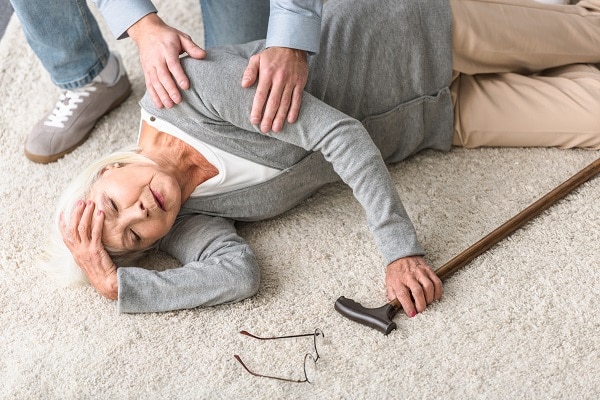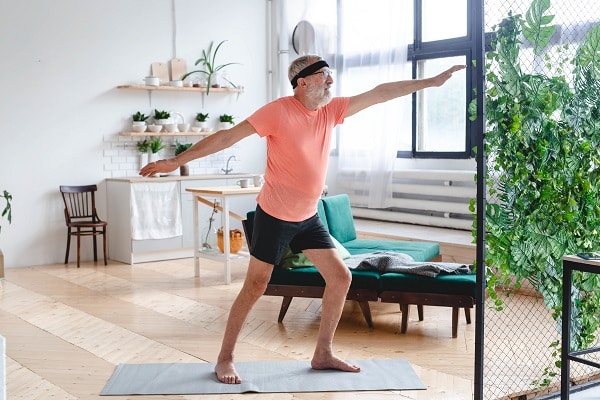Stay safe and healthy! As we age, our bodies change, becoming more susceptible to certain health hazards. It is essential for seniors and their loved ones to be aware of these hazards so that they can take the necessary precautions to stay safe and healthy. This blog post will discuss some of seniors’ most common health hazards. We will also provide tips on how to avoid them.
Contents
Understanding Health Hazards As A Senior
As we age, our bodies become more susceptible to health hazards because our immune system weakens, and we cannot fight off diseases as easily. Additionally, our bones become more fragile and can easily break. We also lose muscle mass and our skin thinner, making us more susceptible to cuts and bruises. As a result, seniors need to be aware of the health hazards that they may face. By understanding seniors’ health hazards, we can take steps to protect ourselves and stay healthy as we age. For example, seniors should take extra care to avoid falls, which can lead to severe injuries. They should also be aware of the signs of dehydration and heat stroke, as these can be particularly dangerous for older adults.
Falls

Falls are a common health hazard seniors face. According to the Centers for Disease Control and Prevention (CDC), one in four Americans over the age of 65 falls each year. Falls can cause serious injuries, including hip fractures, head injuries, and even death. Falls are the leading cause of injury-related death in seniors; many factors can contribute to falling, such as poor vision, declined muscle strength, balance problems, and arthritis. Medications can also increase the risk of falling, as can obstacles in the home such as throw rugs or cluttered rooms. To help prevent falls, seniors should wear supportive shoes, check their vision regularly, and exercise to improve their balance and muscle strength. They should also remove obstacles from their homes and take their medications as prescribed. With a little effort, seniors can reduce their risk of falling and stay safe and healthy.
Dehydration

Dehydration is a common health hazard that seniors face. As we age, our bodies become less efficient at retaining water, and we are more susceptible to health problems that can lead to dehydration. For example, seniors are more likely to have chronic illnesses that can cause fever, diarrhea, or vomiting. In addition, many seniors take medication that can cause dehydration. For example, diuretics often treat high blood pressure but can cause the body to lose too much water. Dehydrated seniors may experience fatigue, lightheadedness, or dizziness. In severe cases, dehydration can lead to hospitalization. To prevent dehydration, seniors must drink plenty of fluids and avoid hot weather and strenuous activity. If you are a senior or care for a senior, keep an eye out for signs of dehydration and seek medical help if necessary.
Heat stroke

As people age, their bodies become less efficient at regulating internal temperature, increasing the risk of heat stroke, particularly during hot weather. Seniors are also more likely to have chronic health conditions that can make them more susceptible to heat-related illnesses. For example, those with heart problems may find it harder to regulate their body temperature, and those with diabetes may be more prone to dehydration. Seniors need to stay cool and hydrated during the summer by wearing loose-fitting clothing and drinking plenty of fluids. If they start to experience symptoms of heat stroke, such as dizziness or confusion, it’s essential to seek medical attention immediately. With proper precautions, seniors can enjoy the summer months without risking their health.
Malnutrition

As people age, their bodies undergo changes, making them more susceptible to health problems. One common issue that seniors face is malnutrition. Malnutrition occurs when a person does not get enough of the right nutrients, which can have a debilitating effect on overall health. Seniors are especially at risk for malnutrition because they often have difficulty digesting food and absorbing nutrients. In addition, many seniors take medications that can interfere with nutrient absorption. As a result, malnutrition is a severe problem that seniors need to be aware of. If you suspect that you or a loved one is suffering from malnutrition, it is important to seek medical help as soon as possible. With proper treatment, seniors can enjoy improved health and quality of life.
Not Enough Exercise

For seniors, the importance of exercise cannot be understated. Exercise helps to maintain muscle strength and bone density, prevent chronic diseases, and improve mental health. However, a recent study shows seniors are not getting enough exercise. Only one in four adults aged 65 or older meets the recommended guidelines for physical activity. There are many reasons for this trend. Seniors may lack motivation, have trouble finding time to exercise, or face physical limitations that make it challenging to be active. Seniors can enjoy a longer, healthier life by committing to being more physically active. Whatever the reason, the consequences of inactivity can be serious. Seniors who don’t get enough exercise are at greater risk for heart disease, stroke, diabetes, and depression. They’re also more likely to fall and suffer from cognitive decline. With these risks in mind, it’s clear that seniors need to find ways to fit exercise into their lives. Fortunately, there are many simple and enjoyable ways to be active, from walking and gardening to dancing and Tai Chi.
Seniors Should Watch Out For These Common Health Hazards
There are many common health hazards that seniors should be aware of. From dehydration and heat stroke to malnutrition and lack of exercise, these problems can seriously impact overall health. However, with proper precautions and treatment, seniors can enjoy good health into their golden years. If you are a senior or care for a senior, keep these health hazards in mind and take steps to prevent them. With a little effort, you can help ensure that your golden years are happy and healthy.


